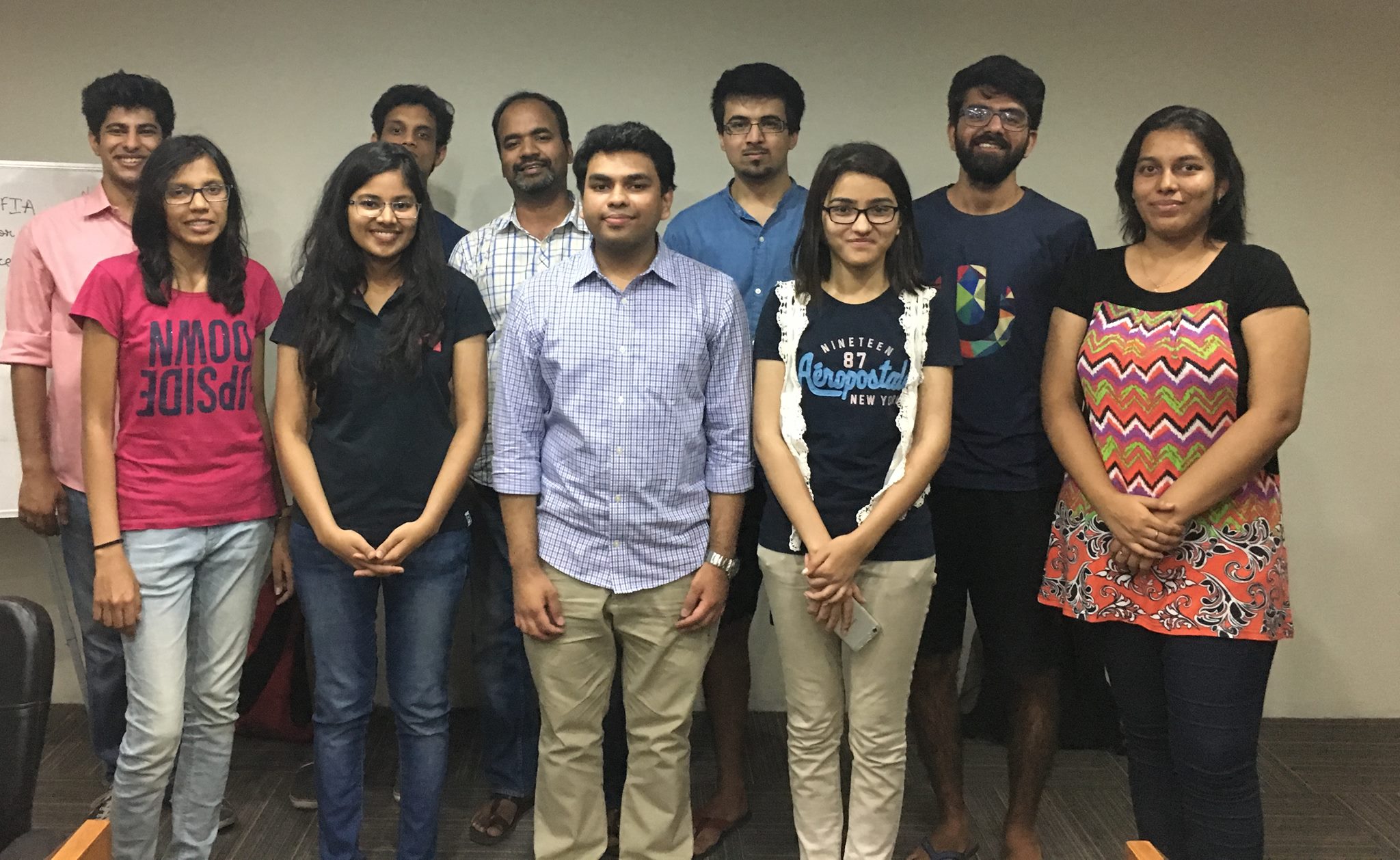Motive is All You Need @Precog
I have been with Precog for three good years, experiencing all the flavors of pursuing academic research and collaborations, both good and bad. Looking back, I’m struck by how profoundly Precog has shaped not just my academic trajectory but my personal growth as well – perhaps more than I initially realized. When I first joined, my only goal was to complete the research necessary for graduation. Now, I find myself transformed into someone who wants to continue on this path. This metamorphosis, I must admit, is largely due to my time with Precog. Unlike some of my peers at Precog, I entered the lab with very minimal exposure to research and was completely ignorant about what was to come or what I wanted to do. If you are someone in the same boat, I urge you to stick around and read it through!
I’m Arvindh, a recent CS dual degree graduate from IIIT Hyderabad. I will continue CS research by joining the ELLIS 2024 PhD cohort at the University of Stuttgart and the University of Edinburgh, broadly focussing on Foundational Knowledge Graphs.
When it comes to flawlessly executing any endeavor, whether CS research or a perfect crime, success hinges on the quintessential triad: MMO – Motive, Means, and Opportunity. With Precog, Means, and Opportunity are well covered, and well, as the title reads – Motive is All You Need.
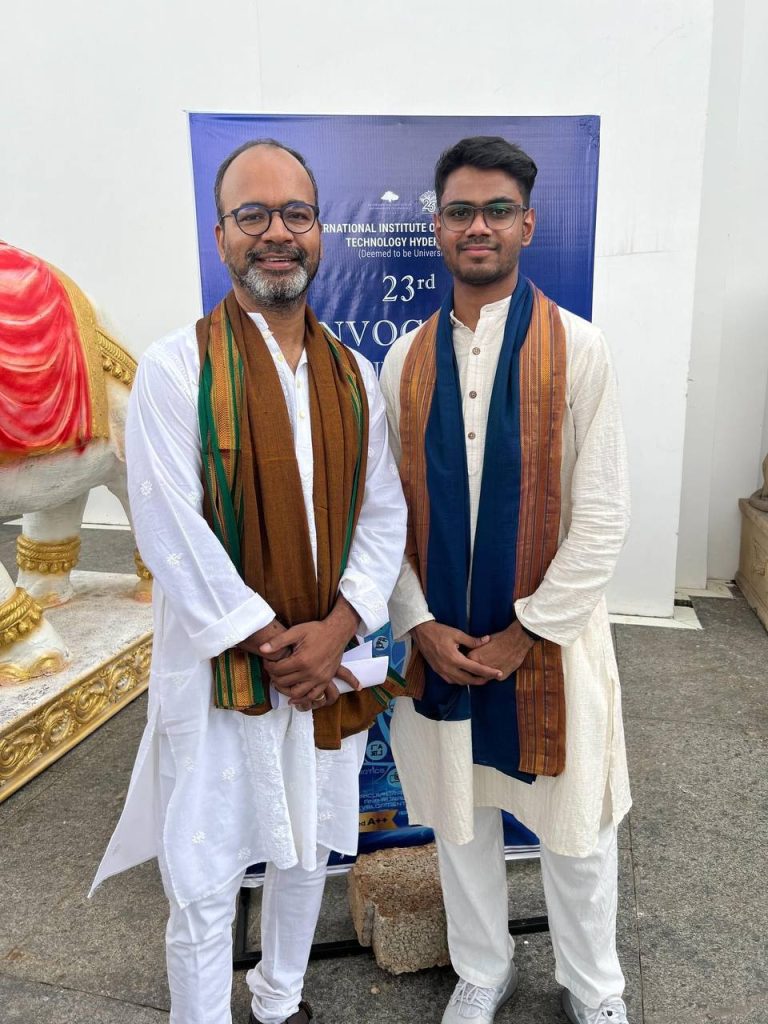
Motive
I joined Precog in 2021, and my entry into Precog was as circumstantial as much as it was pivotal. Choosing to apply to Precog, because my closest friend decided to wasn’t the most calculated decision, but it certainly turned out to be one of the most consequential of my academic life. I didn’t have a clear idea of what I wanted to do, but I was clear on one thing – I wanted to be surrounded by the best peer group possible.
I knew I was at the right place within a couple of weeks of joining. PK immediately got me involved with some logistical responsibilities, like hosting BMs every week, which, in hindsight, served as the perfect icebreaker for me to get comfortable with the group. There is plenty of room for you to derive motivation as well, sometimes even forcibly 🙂 Arjun, back in 3-1, forcibly convinced me to work with him on a shared task focussed on the identification of Toxic, Engaging, and Fact-Claiming Comments on social media. Being just a couple of 2-month-olds at precog, we got to experience the entire research writing pipeline very early on and submitted our work towards the middle of 3-1. We ended up finishing 6th globally on the task and had an opportunity to present our work virtually to a mature audience with a positive reception, which served as a huge confidence booster for me. Time and again, when I felt lost and unmotivated to work, I would spend some time at the lab, where the motivation was contagious!
Means
There are a lot of weapons in your arsenal at Precog to not only work on exciting research problems but also to grow holistically. In my opinion, a good research lab has three crucial components – the Advisor, Peers, and Compute! and Precog gets everything right.
I see PK as my mentor first and my thesis advisor second. One of the main advantages of his mentoring style is the freedom you get, which I felt is very underrated. I remember bouncing off numerous ideas with him, putting together a group to work on a few, and sometimes failing to execute them. But such freedom comes with a price: owning up to your work. I have been responsible for certain parts of the project not going smoothly as planned, for which I have taken it upon myself to fix it. He lets you take your own path while intervening and assisting if you go wrong or get stuck somewhere. Ultimately, the freedom and responsibility only make the end goal even more rewarding. Back in 4-1, when I had an opportunity to intern at the AI/ML team of the Investment Banking firm, he was open to me pursuing it despite its implication that I wouldn’t be able to dedicate time to the projects that were going on parallelly. PK’s candor, sometime vagueness and his experience make me approach PK even when I have crucial career and academic choices outside of Precog and seek his opinions.
The soul of Precog lies in its people; the lab culture is very welcoming. You would get the best peer group possible on campus. From academic lab discussions to casual conversations during our annual dinners, every interaction was an opportunity to learn and grow your network. I have taken up several research projects which stemmed from my daily lab interactions. The support system here doesn’t just operate within the confines of the lab but extends into the lifelong connections we end up forging. Precog is not just all work; there is a lot of fun involved too. We have annual dinners, go bowling sometimes, and order pizzas for the entire lab when we have the occasion. There is a solid alum base around the world. When I traveled to Europe to attend a conference, I caught up with several precog members and alumni, some traveling to the conference and some residing in Europe. The close-knit nature of Precog really comes in handy when you find yourself lonely anywhere in the world. Finally, the lab space is also amazing, with wide windows and great views. I often find myself mindlessly gazing through them over the horizon on rainy Hyderabad afternoons.
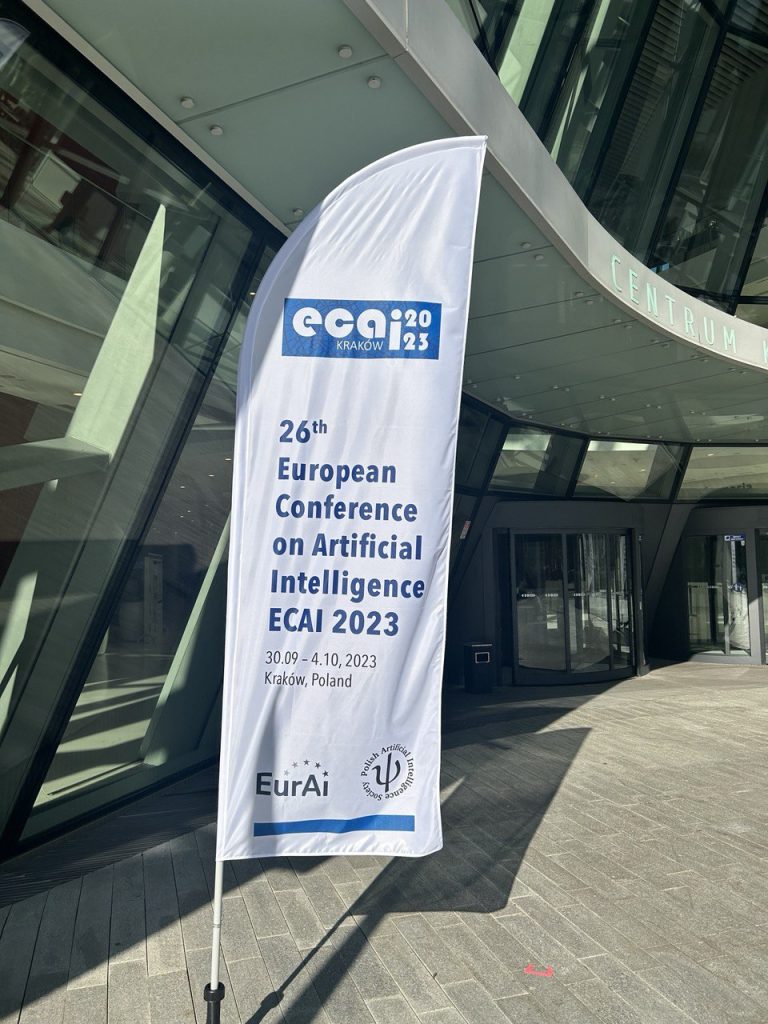
ECAI, 2023. 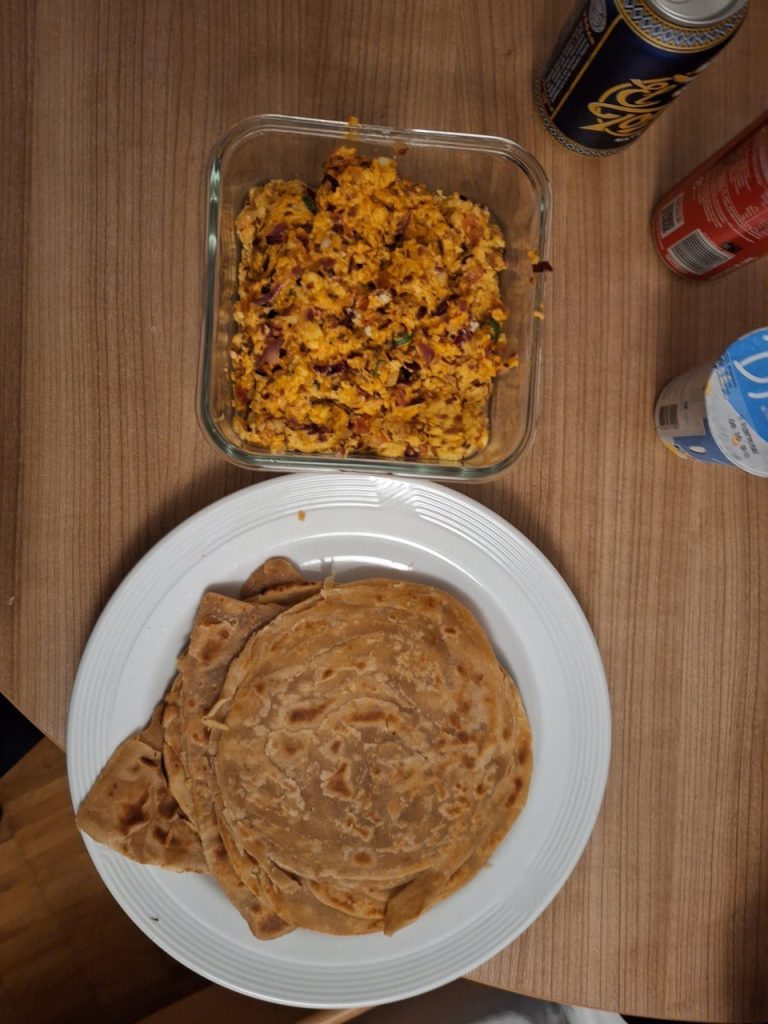
Impromptu homemade Precog dinner at Zurich, 2023.
With the state of current AI research, having enough computing power to run large models locally and experiments on them is paramount to compete with labs from across the globe. With its new addition of 2x32GB Nvidia A5000 GPUs with 24 cores and 256GB RAM to its already existing compute cluster, Precog has enough silicon under its sleeve to run all the experiments you want and more. In the past, we have also subscribed to powerful cloud instances as and when the demand arose. Compute is something that one might gloss over initially, but I found it as a bottleneck, more often than not. This paragraph is just meant to be a reassurance to those who thought this through.
I remember entering Precog as someone reluctant to participate in public discussions. Thanks to weekly WUs, BMs, and, more importantly, casual lab conversations, I have now grown to like actively participating in them. Expressing your ideas and thoughts to a knowledgeable audience is an underrated skill you will have plenty of opportunities to hone in Precog. WUs and BMs, which sometimes feel frustrating as you have to take some time off of your busy sem, definitely help you in the long run by at least giving you an opportunity every week to work on your communication. Putting numbers in perspective, I would have presented my work/prominent works in my domain at least 100 times over the last three years of my time at Precog.
Opportunity
One of the most important things Precog gets right is collaborating with some of the best research groups worldwide, both from academia and industry.
In early 3-1, we collaborated with Prof. Polo Chau from Georgia Tech to work on Fraud Detection in Social Networks. Starting with only a vague idea about the problem statement we would be working on, except the overarching domain, I got to experience both the excitement and challenges of working on popular problems in the domain by doing a ground-up search. Being my first collaborative research project, it shaped my views on the domain for the good. We ended up working on detecting user exploitation by certain categories of apps on the Google Play Store and identifying fake reviewer networks that collaborate to boost an App’s rating. We initially submitted our work to WWW, one of the top conferences in the domain, where it was eventually borderline rejected. We quickly regrouped, incorporated the feedback, pivoted some aspects of our approach, and submitted it to ACM HyperText by the end of my 3-2, where it was accepted (paper) into the LBR track.
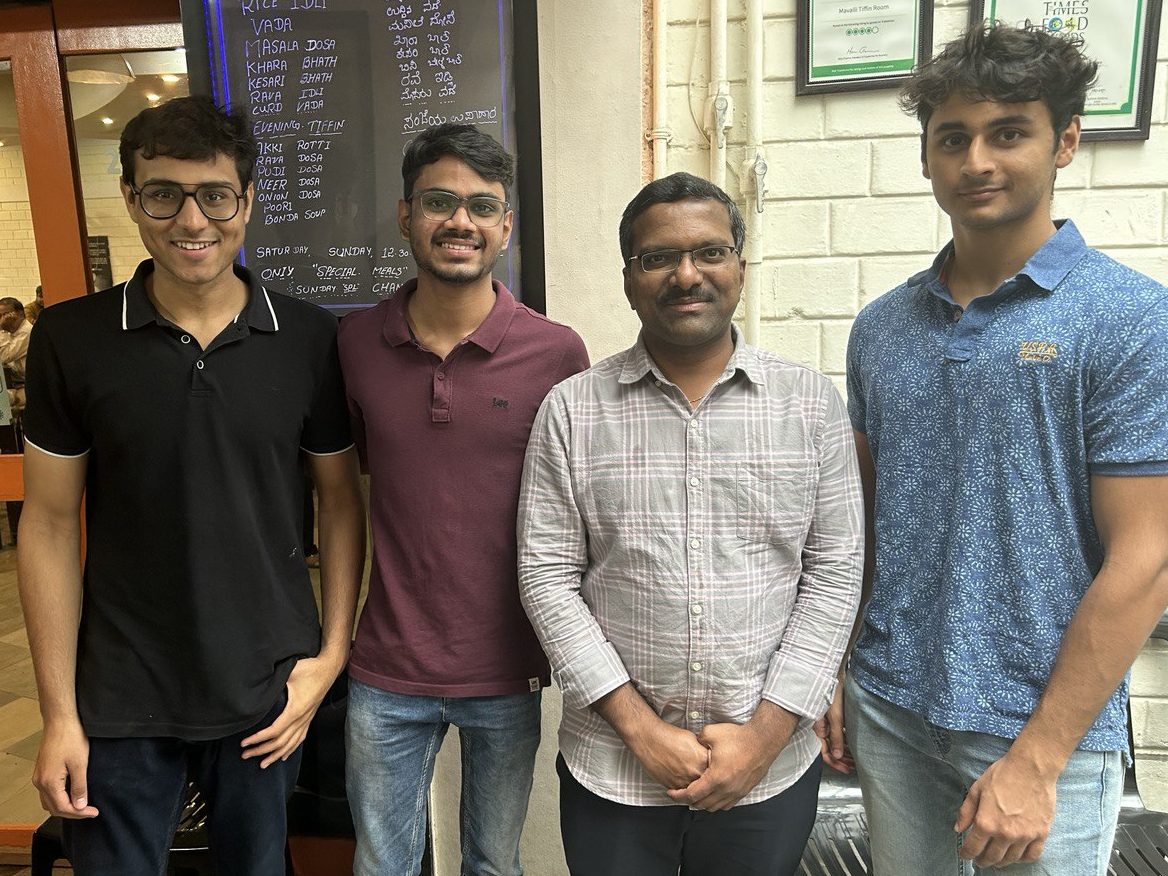
There are not only academic collaborations but also industrial ones. My main thesis work was, in fact, done in collaboration with Dr. Ramasuri Naraynam from Adobe Research. We started working on fairness-aware GNNs around the end of 3-1. After working around a year on this, with hibernation periods in between mainly due to lack of focus from our side, we submitted it to IJCAI at the beginning of 4-1 to face a quick desk rejection. As we were quite confident about the work, this was something we weren’t prepared for. After taking a couple of weeks to regain our confidence, we decided to give it another shot. We mainly focussed on modifying the narrative to make a stronger argument without making big changes to our proposed method, CAFIN. The shepherd system at Precog, where other lab members and PK review your work internally before submissions, greatly assisted us. Around the end of 4-2, we submitted it to ECAI ’23, where it was accepted (paper) as an oral presentation. I also had an opportunity to attend the conference in person at Krakow for a 15-minute Oral presentation on CAFIN; huge thanks to Microsoft Research India for sponsoring my travel. More than just getting our work accepted, I also made some amazing life-long friends through this work.
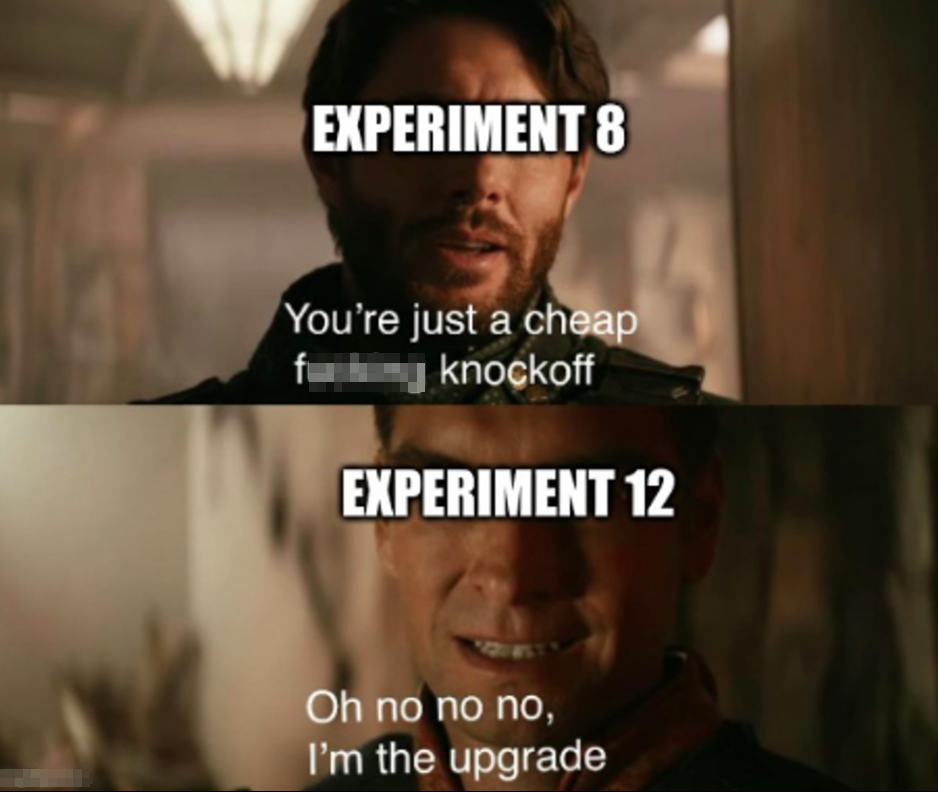
People say we worked only when we took a break from making memes, 2023.
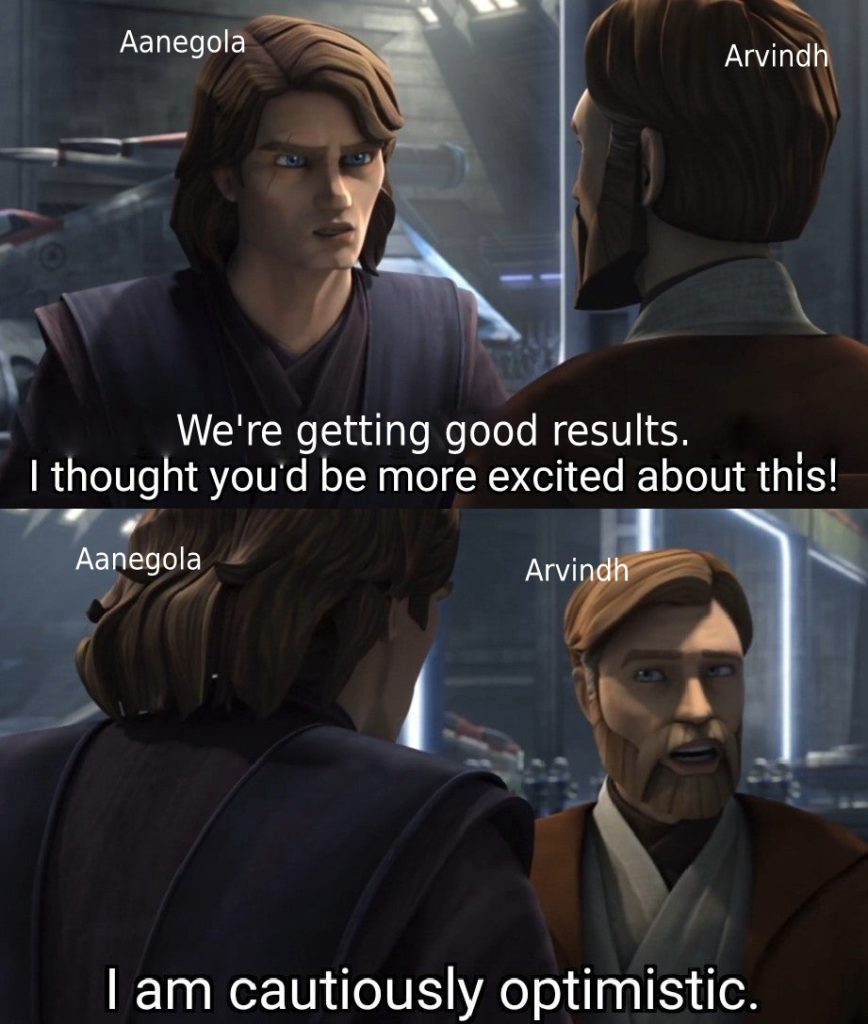
Around the start of 4-1, we started working with Prof. Jisun An from Indiana University, Bloomington. We started working on something initially and pivoted crucially in the middle to work on analyzing the hate speech landscape changes on Twitter. After spending months collecting data right before the Twitter API deprecation, we had a sizable amount of data to analyze and build a narrative around. We explored various narratives and finally converged on analyzing the changes to the hate landscape of Twitter after ELon’s takeover and potentially a method to identify such imminent changes. We eventually submitted it to WWW 2024 as a short paper, which was borderline rejected. In around a month’s time, we quickly improved our narrative and submitted it to WOAH’24, a NAACL workshop, where it was accepted (paper).
Moreover, the lab is always open to new collaborations as well. During early 5-1, I had an opportunity to collaborate with a team from Google Research (now part of Deepmind) to work on the intersection of Graph ML and social networks. We eventually merged it as a Precog collaboration to get more manpower and expand the scope of our work. Opportunities come fast and hard at Precog, it is just you who has to be prepared to embrace them 🙂
The Execution
Overall, I had a very rewarding time at Precog. I got to work on interesting domains, meet wonderful collaborators worldwide, and, more importantly, make good friends. While graduating, I had a lot of opportunities to pursue – I received PhD offers both in the US and Europe, an MS at Columbia, and job offers at Quant Research Firms. I believe that my time at Precog considerably impacted what I eventually chose to do from these, be it direct or indirect. Precog provided the perfect blend of academic rigor, collaborative opportunities, and personal growth. If you’re looking for a place to excel holistically in your academic and research journey, I urge you to consider joining Precog if you have the opportunity!
